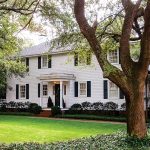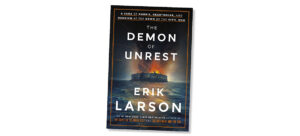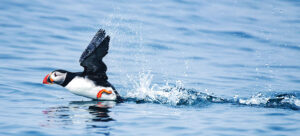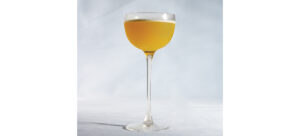
Relief Guide
All’s well that ends well
By Tom Bryant
We were meandering around in the lobby of the old hotel like a couple of lost bird dogs. Bubba sidled over to me and said, “Well.”
“Well what? “ I replied.
“Where is that fool guide who’s supposed to take us sea ducking?”
“You got me. After that fiasco of a goose hunt this morning, he said he would have his man meet us here around lunch. It’s now 1 o’clock. Seems to me, it’s after lunch.”
“Coot, I don’t know how you always get us in messes like this.”
“What do you mean, me? It was your idea to bid on this guy at the auction.”
“I know, but he talked a good game. Maybe it is my fault, but you should have convinced me not to do it.”
“I tried, but your last gin and tonic had more influence than I did. Maybe he’ll show up. It’s early yet.”
We were on the Eastern Shore of Maryland, near the town of Easton to be exact, on a three-day Canada goose and sea duck hunt that Bubba had bought in an auction at our wildlife club. It wasn’t our first adventure in that part of the country. He and I had hunted on Bill Meyer’s plantation, Plimmhimon, on the banks of the Tred Avon River, and very successfully, I might add. But this misadventure only emphasized how good we had it at Bill’s farm.
Our early morning goose hunt was anticlimactic, to say the least. The night before, we had bunked at the fellow’s supposedly sumptuous clubhouse, which turned out to be a converted two-car garage attached to the good old boy’s house with bunks lined up along the wall. Bubba accused me of snoring; and a constant barrage of pillows, magazines and shoes kept me awake until he finally dozed off. Then an Amtrak train roaring through the front door couldn’t have awakened him.
The next morning we followed our learned guide in Bubba’s Land Rover as his old rattle trap of a pickup smoked down the road. We ended up at a long-ago picked cornfield that would have had a hard time supporting a field mouse, and a pit blind that needed re-brushing. This was our second day goose hunting, and our bag thus far: 0 for 2.
It didn’t take us long to settle in, and our guide said he was going to run over to his other farm to see if the geese were working there.
“Do you know what that means, Coot, other farm?” Bubba asked as the guide rattled away in his old pickup.
“Yeah, it means he’s going to town to get breakfast.”
“I’m going to catch up on some shut-eye. That snoring of yours kept me up all night. All the geese are probably down around Mattamuskeet anyway. Wake me if you hear anything.” Bubba made himself comfortable in a corner of the blind, and in no time, was dozing.
After about 30 minutes, as the sun was peeking over the horizon, I heard a lonesome goose calling in the far distance near the north tree line. I perked up and kept my eyes focused in that direction. In no time, three geese flew treetop high, heading toward the blind as if on a string.
“Bubba,” I whispered. I leaned over and grabbed his boot. I hadn’t even loaded my gun, so I was rapidly pushing shells into the magazine and shucked one down the pipe, ready to go. Bubba looked over at me and I said, “Get ready. You here to sleep or shoot?”
Bubba looked at me bleary-eyed and grabbed his gun. By then, the three geese were right in front of the blind, gaining altitude, heading to parts unknown. We stood, fired, and all three hit the ground.
We climbed out of the pit to retrieve the geese and Bubba said, “Coot, these are the three unluckiest geese in Maryland. They just happened to fly our way. Did you see how they flared when they saw those decoys? If this fellow, our guide, is a goose hunter, then I’m a brain surgeon.” We put the geese in the blind and rearranged the decoys. “These decoys haven’t been moved since the season opened. When that guy comes back, I might shoot him.”
As the morning dragged on, our guide finally did show up. He was ecstatic that we had bagged three geese. “I saw several working over at the other farm, but they headed out over the river in the other direction.”
“Yeah, right,” I thought. Bubba grimaced and didn’t say a word.
We spent the next hour with very little conversation, and after a bit, the guide said, “Well, fellows, we’ve got two options for the afternoon. You can come back here and try out the geese as they come in to feed, or I’ve got a fellow who will take you sea ducking. Your choice.”
Bubba answered, “You know what? We’re gonna get an early start in the morning, so here’s what we’ll do. We’ll go back to the lodge, load up our gear, find a couple of hotel rooms and meet your sea duck guide. We can clean the geese and have lunch while we wait. All you need to do is tell us where to meet this fellow.”
Bubba’s impromptu plan worked great. The hotel where we booked two rooms was right on the bay and had a marina where we assumed our sea duck guide kept his boat.
We were still in the lobby of the hotel commiserating about our lack of a guide when this young fellow came over to us and said, “I heard you guys talking about wanting to go sea ducking.”
“Absolutely,” Bubba said. “We didn’t think you were going to show up.”
“I’m not the guide you’re looking for, but I can sure take you hunting. If you haven’t been before, it’s quite an experience.”
He was right. It was unlike any other waterfowl hunting Bubba and I had ever done; and thanks to the young fellow and his boat, we had a grand time. We found out that he was leaving the very next morning for Alaska, where his uncle had a fishing lodge. He said he would probably get there in time for the opening of the season.
We also learned that he was, as he put it, “Fifty percent American Indian. I’m not particularly politically correct with this Native American thing. I’m proud to be part Indian.”
On the drive home, Bubba was in an unusually pensive mood as we talked about the trip and the lack of honesty shown by our goose-hunting host. We never did find out what happened to his sea duck hunting guide.
“And look at you, Coot, getting those two oldsquaw ducks. They’re gonna look good hanging on your wall.”
Bubba was right. They are two of my favorite duck mounts, though the oldsquaw name has been replaced, changed to “long-tailed duck” in deference to Native Americans. By any measure, they bring back wonderful memories of an unexpected guide who loved his heritage. PS
Tom Bryant, a Southern Pines resident, is a lifelong outdoorsman and PineStraw’s Sporting Life columnist.





